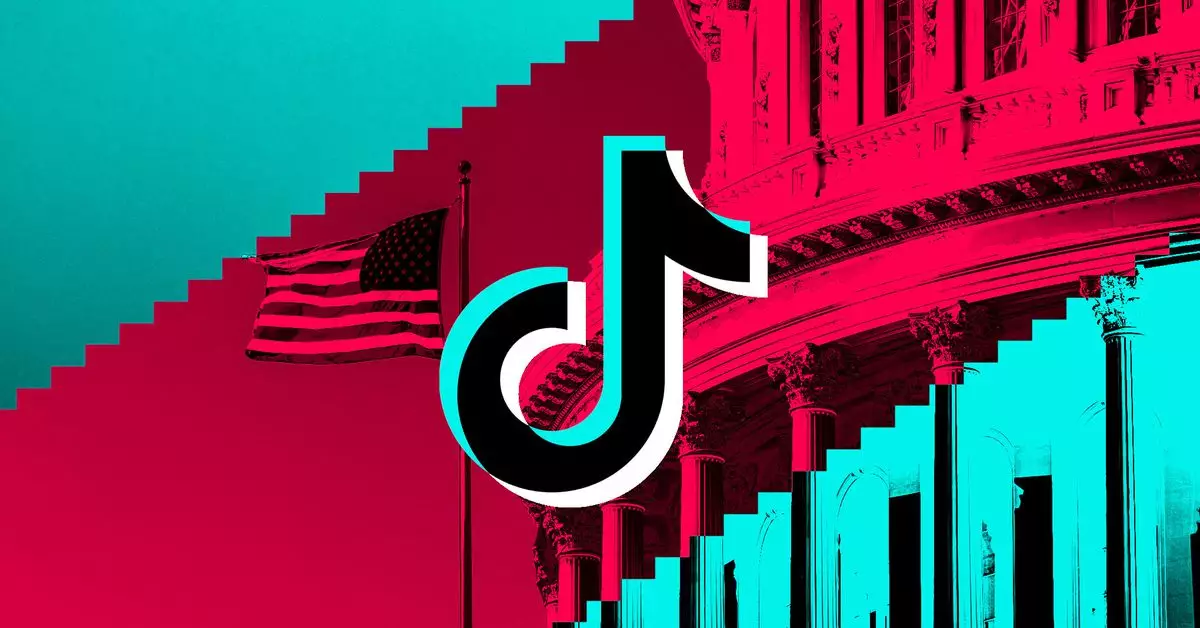In a dramatic turn of events, President Donald Trump has once again thrust TikTok into the center of political discourse with an executive order aimed at delaying the enforcement of regulations that could force the popular app to sever its ties with its Chinese parent company, ByteDance. Issued on the first day of his incumbency, this executive order raises questions about legal authority, corporate repercussions, and the broader implications for American-China relations.
The core of Trump’s order revolves around a directive to the Department of Justice, instructing it not to enforce a rule established by The Protecting Americans from Foreign Adversary Controlled Applications Act. This law was designed to compel ByteDance to divest from TikTok or face severe penalties, potentially banning the app in the United States. By issuing this order, Trump essentially undermines the deadline set for ByteDance to sell its stake, thereby providing a reprieve for the company and, by extension, its American partners, like Apple and Google.
The order specifies a 75-day period during which the Attorney General is instructed not to pursue any action against American companies that might be implicated in TikTok’s operations. Notably, it goes so far as to state that there will be no liabilities for conduct that occurred prior to the signing of this order, indicating an attempt to offer a clean slate of sorts to involved entities. This move, interpreted by some as a diversion from the law passed with bipartisan support, could have far-reaching implications for regulatory practices concerning foreign-owned apps.
Adding to the complexity of Trump’s order is the legal ambiguity surrounding the enforcement of the act post-January 19, 2025. Although the law allows for a 90-day extension if ByteDance commits to a sale to a non-foreign adversary, the intricacies surrounding what constitutes a “foreign adversary” and the feasibility of such a sale remain contentious points. Moreover, Trump’s choice to potentially bypass the legislative timeline raises critical questions regarding the limits of executive power, especially in the context of an executive order that contradicts a law enacted by Congress and maintained by the judicial system.
Furthermore, legal experts have warned that tech companies could face astronomical fines, estimated at $850 billion, should they disregard the requirements of the act. This is not a trivial consideration as litigation risk hangs heavy over any company contemplating collaboration with TikTok while such penalties loom. An executive order, no matter how authoritative, may not sufficiently shield these companies from legal retaliations and obligations that transcend presidential decrees.
Despite Trump’s assurances, American companies might still hesitate to engage with TikTok due to the potential backlash from non-compliance with the law. The delicate balance between appeasing a powerful political figure and adhering to legal stipulations creates a nuanced dilemma for companies embroiled in this situation. Many may be reluctant to resume or continue their partnerships with TikTok purely on the basis of a presidential order, especially given the grim penalties at stake. While reinstating TikTok could flatter the former president, it also risks igniting wrath from legal authorities pursuing compliance.
Moreover, Trump’s declaration of a potential “joint venture” model wherein the U.S. government could hold a 50% stake in TikTok speaks volumes about the convoluted nature of American foreign relations and national security interests. The lack of clarity regarding the execution and ramifications of such a venture further complicates this ongoing saga. This proposal, steeped in vagueness, raises questions about feasibility and legality that could have ramifications extending far beyond the TikTok platform itself.
As the deadline set by The Protecting Americans from Foreign Adversary Controlled Applications Act looms closer, the intersection of technology, law, and politics invites further scrutiny. Trump’s executive order offers a temporary respite for TikTok, but the long-term implications for both American companies and U.S.-Chinese relations are fraught with uncertainty. The dance between compliance, legal frameworks, and corporate interests continues, making this a significant chapter in the ongoing narrative surrounding tech governance and international diplomacy. With stakes this high, the future of TikTok and its parent company remains a crucial watchpoint in the broader landscape of U.S. technology policy.

